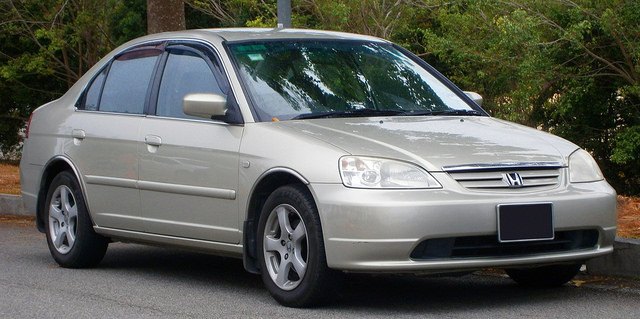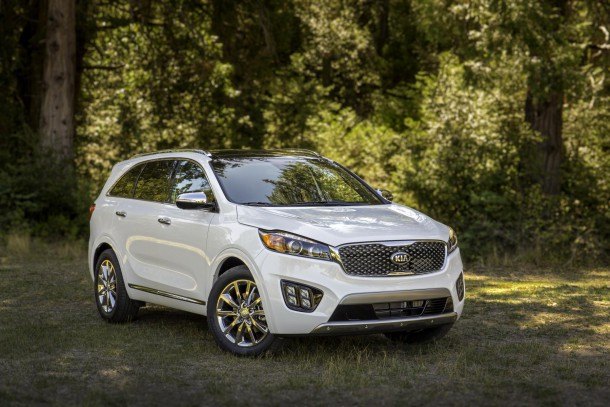#studies
Fuel Regulation Compliance Costs Could Be 40% Lower Than EPA Estimate
An economic assessment conducted by the International Council on Clean Transportation found that, due to recent improvements in technology, the Environmental Protection Agency’s rationale for its 2025 fuel efficiency standards may have overestimated the cost for automakers to comply. The ICCT’s study shows average per-car investments 34 to 40 percent lower than the previous EPA appraisal.
While this information, had it come out sooner, may not have kept automotive executives from bending the president’s ear to reevaluate EPA guidelines, it certainly reframes their reasons for doing so. The ICCT, famous for turning researchers loose on Volkswagen diesels, makes a good case that manufacturers have the tools to meet current standards without spending a lot of money.
The Average American is Seriously Afraid of Autonomous Cars: Study
There is something uncanny about a car that can drive itself. If you transplanted the world’s first motorists into a modern autonomous vehicle and let it lose on a track, they’d probably surmise witchcraft as the only plausible explanation and jump out in terror. Humans are innately distrustful of anything unfamiliar — it’s an important part of our survival strategy as a species. With that in mind, it isn’t surprising to hear that many Americans are a little wary of self-driving cars.
However, a recent study from the American Automobile Association suggests it might be more serious than that. The vast majority of surveyed Americans admitted to being “afraid” of riding in an autonomous vehicle while over half said they felt less safe at the prospect of sharing the road with driverless technology. This isn’t likely to be welcome news for automakers, considering that every major manufacturer is currently investing heavily into the computer and industrial sciences required to make autonomous tech possible.
Why Are Vehicles Still so Heavy? Blame Manufacturing Infrastructure
Car manufacturers have achieved significant fuel economy gains in recent years, but the improvements largely come down to upgraded drivetrain efficiency. Vehicles still weigh substantially more today than they did in the early 1980s, when the previous decade’s demand for fuel economy improvements forced the issue.
Since then, automobiles have gradually packed on the pounds — negatively offsetting the technology encouraging fuel frugality. Modern safety concerns, improved build quality, sound dampening, and consumer demand for bigness have all helped to keep the typical family transport oinking around a two-ton curb weight.
If companies could effectively slim down those autos, without sacrificing structural rigidity, safety, or consumer comfort, the efficiency gains would become all the more significant. However, with few consumers ready to dive back into noisy, frail hatchbacks, weight savings will likely need to be done on the molecular level. In a new study, the Center for Automotive Research (CAR) in Ann Arbor investigated the materials going into 44 separate 2015 model year cars and asked automakers what would they use if they suddenly needed to reduce weight from essential items.
Study: Which Car Models Do Owners Keep for 10 Years or More?
A few billion years from now the sun will swell up, engulf the Earth with its plasmatic mass, and the only evidence of our existence will be a handful of fully operational Japanese cars from the late 1990s.
You probably don’t even need model names, as you’re already imagining them cruising down the street or parked in a neighbor’s driveway. They’re bland, extremely common cars in perplexingly good condition because someone continues to love them.
Now, a new study has shown which car models owners tend to hold on to for longer than ten years. Researchers from iSeeCars.com analyzed over 2.5 million vehicles from the 1981-2006 model years sold in 2016. Ten models were over 1.9 times more likely than average to be held onto by the original owner for better than ten years. While I’m positive you could correctly guess the automakers behind those vehicles, I’m unsure whether you could do the same with the model names.
Gen Xers, Millennials Struggle to Find Trusted Mechanics
Everyone knows a friend or, more frequently, a friend’s middle-aged dad who has “a guy.”
The guy in question doesn’t necessarily need to be male and the friend only needs to know them tangentially. They just have to be some kind of professional or tradesman that they trust implicitly with a single important aspect of their life. For automotive enthusiasts, the guy is a mechanic and usually has a whole shop backing him up. Unfortunately, “the guy” has remained elusive for younger generations.
The Average Road-going Vehicle is Now Older Than Ever
The life expectancy of the average automobile was only 6.75 years in 1930. It is almost double that now and shows no signs of stopping.
As cars and trucks have continued to become longer lived, the number of operational vehicles in the United States hit a record high this year. Despite the automotive genocide that was Cash for Clunkers, the average vehicle on U.S. roads has grown in age since the financial crisis. Either through necessity or personal preference, Americans are currently holding onto their cars longer than ever before.
Not So 'Standard' Anymore: The Manual Transmission is Almost Dead
We knew it was happening, but the actual extent of three pedal abandonment remained somewhat elusive. It was more of a feeling than a grim statistical representation. Now we have a number, and it’s dismal.
Report: Uber Hasn't Made New York Traffic Worse, But It Could
Over the summer, New York City Mayor Bill de Blasio said Uber drivers were making Manhattan traffic worse and commissioned a $2 million study to prove it.
Except it didn’t.
According to the Wall Street Journal, findings from the report will show that ride-sharing services such as Uber and Lyft haven’t significantly increased congestion in Manhattan, but it might if it continues its current trajectory.
So, what else do you have?
Koreans Best Japan In 2015 JD Power Initial Quality Study
Once one of the bests among the rests, Japanese automakers fell below average in the 2015 J.D. Power Initial Quality Study as the Koreans rise in quality.
Study: Virtual Drivers Possible Key Toward Autonomous Vehicle Acceptance
Virtual drivers may be the key to developing trust in autonomous vehicles, so long as those drivers are quicker on the draw than Johnny Cab in an emergency.
Study: 2025 54.5 MPG CAFE Target Within Reach
Per a new study by the Consumer Federation of America, U.S. average new-car fuel efficiency is well on its way to hitting the 54.5-mpg target set for 2025.
Study: Millennials Love Cars, Not So Much EVs
Per a new study by Continental AG, millennials love cars as much as they love iPhones, so long as their rides aren’t electrified.
AAA: Average Annual Driving Costs Fall 2 Percent In 2015
According to AAA’s 2015 Your Driving Costs study, annual driving costs costs fell 2 percent to an average of $8,698 in 2015.
Study: Battery Pack Costs Fell 14 Percent Annually Over Seven Years
Though the most expensive part of an EV or PHEV is its battery pack, a new study shows those costs are falling at a hefty clip.
Support For Automated Enforcement Only So-So Among Americans
While use of red-light and speed cameras are on the wane, support for automated enforcement depends upon where and who the constituent is.





























Recent Comments